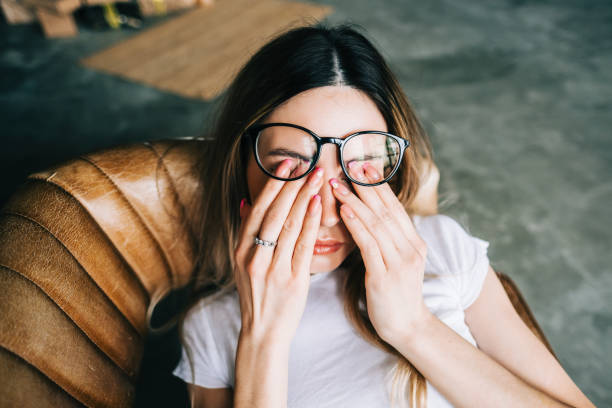When we think about living a healthier life, diet and exercise usually top the list. While both are undeniably important, there’s another essential pillar that often gets overlooked—sleep.
In today’s fast-paced world, getting a full night’s rest has become a luxury for many. People sacrifice sleep to work longer hours, study late, or even squeeze in early morning workouts. But science makes one thing clear: sleep is not optional. It’s a fundamental part of your health, playing a role that’s just as critical as proper nutrition and regular physical activity.
Let’s explore why sleep deserves the same attention we give to food and fitness—and how it affects nearly every aspect of your health.
Sleep Supports Physical Health and Recovery
While you’re asleep, your body gets to work repairing tissues, balancing hormones, and strengthening your immune system. Growth hormone, which plays a key role in muscle repair and fat metabolism, is mostly secreted during deep sleep stages.
If you’re exercising regularly but not sleeping enough, your muscles won’t recover as effectively, and your fitness progress may stall. Likewise, chronic sleep deprivation is associated with a weakened immune system, making you more vulnerable to illness.
In fact, studies show that people who sleep less than six hours a night are more likely to develop heart disease, high blood pressure, obesity, and type 2 diabetes—conditions that are also influenced by poor diet and inactivity.
Sleep Regulates Hunger and Weight
One of the strongest connections between sleep and health lies in the area of appetite and metabolism. When you don’t get enough sleep, your body produces more ghrelin (the hunger hormone) and less leptin (the hormone that signals fullness). The result? You feel hungrier, crave high-calorie foods, and are more likely to overeat.
Lack of sleep also affects insulin sensitivity, which can increase your risk of weight gain and blood sugar imbalances. Even a few nights of poor sleep can disrupt glucose metabolism in ways that mimic the early stages of diabetes.
This means that without adequate rest, even a healthy diet may not be as effective for maintaining weight or controlling blood sugar.
Sleep Fuels Mental Clarity and Mood
A sharp mind and a stable mood are essential for making healthy decisions—whether it’s choosing nutritious meals, staying active, or managing stress. Sleep plays a direct role in how your brain processes information, solves problems, and regulates emotions.
When you’re sleep-deprived, concentration becomes harder, memory suffers, and mood swings become more likely. You may feel irritable, anxious, or even depressed. Over time, poor sleep is strongly linked to long-term mental health issues.
Think of sleep as mental maintenance. It clears out toxins in the brain, consolidates memories, and supports emotional regulation. Without it, your cognitive performance and emotional resilience decline—making it harder to stick to your wellness goals.
Sleep Enhances Exercise Performance
Athletes and fitness enthusiasts often prioritize training and diet, but sleep is where the body truly grows stronger. During deep sleep, muscles repair, tissues regenerate, and energy stores are replenished.
Sleep also affects coordination, reaction times, and endurance—all key components of athletic performance. Studies have shown that well-rested individuals perform better, recover faster, and are less likely to suffer from injuries.
On the flip side, skipping sleep can lead to sluggish workouts, increased perceived exertion, and a higher risk of burnout.
Poor Sleep Negates Good Habits
You could be eating kale and running 5Ks, but if you’re only sleeping 4–5 hours a night, your body is under chronic stress. Over time, this stress can undo many of the benefits of a healthy lifestyle.
For example, lack of sleep raises cortisol levels (your stress hormone), which promotes fat storage—especially around the abdomen. It also interferes with immune function, making it harder to recover from both workouts and illness.
This is why sleep isn’t a “bonus” or a “reward”—it’s a core component of well-being. Without it, your body simply can’t operate at its best, no matter how good your diet or workout routine may be.
How Much Sleep Do You Really Need?
The amount of sleep you need depends on age and individual lifestyle, but general recommendations are:
- Adults: 7–9 hours per night
- Teens: 8–10 hours
- Children: 9–12 hours
- Older adults: 7–8 hours
It’s not just about the quantity of sleep—it’s also about quality. Deep, uninterrupted sleep is where the real health benefits happen.
Simple Habits for Better Sleep
If getting enough rest is a challenge, here are a few science-backed strategies:
- Stick to a regular sleep schedule, even on weekends
- Limit screen time at least an hour before bed
- Avoid caffeine and heavy meals late in the day
- Create a sleep-friendly environment—cool, dark, and quiet
- Wind down with relaxing activities, like reading or meditation
Small changes in your nighttime routine can lead to big improvements in your overall health.
Final Thoughts
Diet and exercise often get the spotlight in health conversations—but sleep is the silent powerhouse behind them both. It supports everything from metabolism and muscle growth to mental clarity and emotional balance.
If you’ve been putting sleep on the back burner, now’s the time to bring it to the top of your health checklist. When you prioritize sleep alongside good nutrition and physical activity, you create a strong foundation for lifelong wellness.

